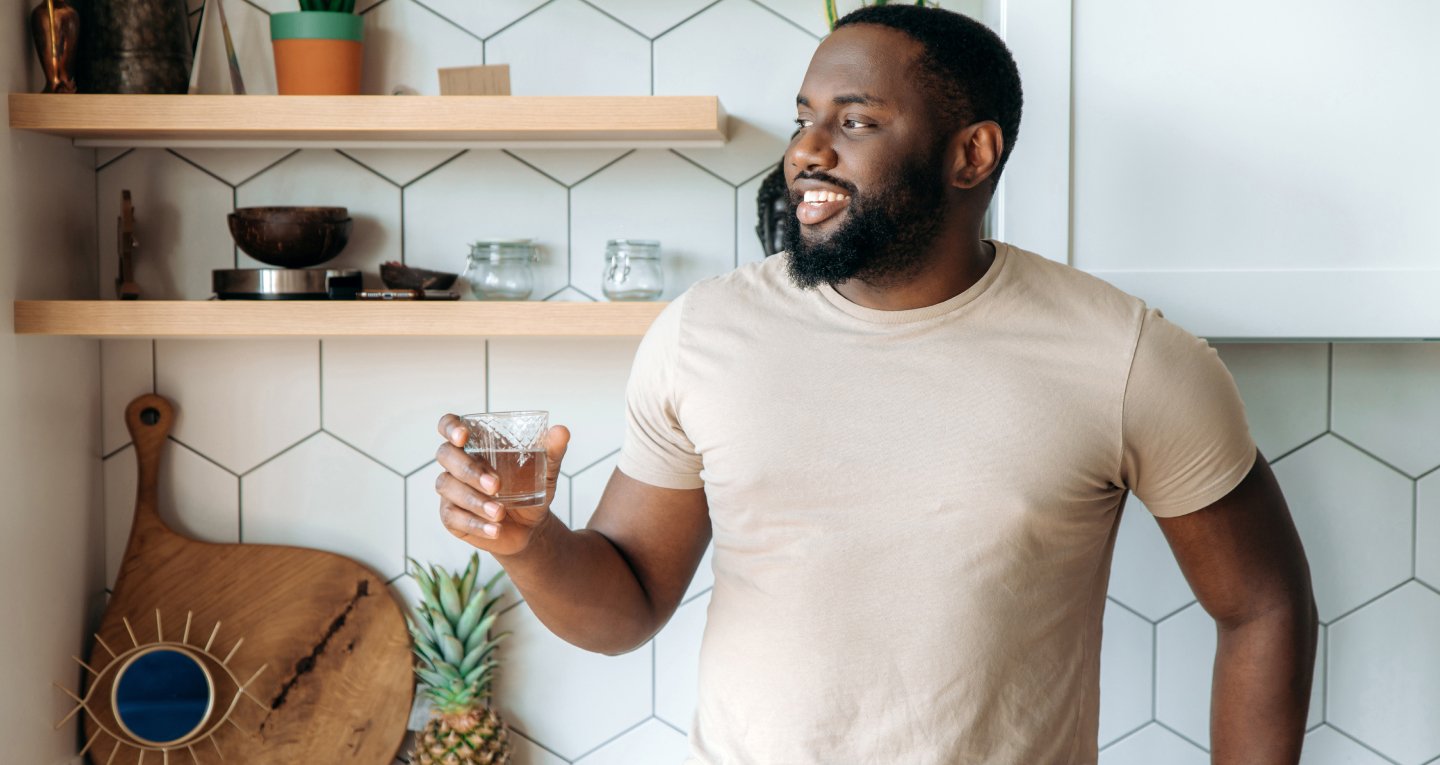When it comes to managing your blood sugar, you already know that nutrition and exercise can make a huge impact on your numbers. But, often, one of the “forgotten strategies” for blood sugar management is sleep, says One Drop coach, Sandra, a registered dietitian/nutritionist (RDN) and certified diabetes care and education specialist (CDCES).
In terms of what you’re drinking, plain water is always going to be your best bet. When it comes to caffeinated drinks, make sure you’re mindful of your intake, especially later in the day, says Decker. “Caffeine can also raise blood sugar levels in addition to making it harder to sleep at a restful hour,” adds David Ahn, MD, an endocrinologist, program director, and Kris V. Iyer Endowed Chair in Diabetes Care at the Mary and Dick Allen Diabetes Center.
And, while there’s no harm in the occasional nightcap, it’s worth knowing that alcohol can both raise and lower blood sugar, notes Dr. Ahn. Plus, while you may feel sleepier soon after drinking, he says, “alcohol leads to worse sleep quality over the course of the night.”



